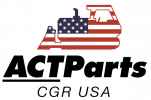Engine pumps play a critical role in ensuring the efficient functioning and longevity of heavy-duty machinery. Water and oil pumps are vital components that should receive regular preventative maintenance, either weekly, monthly, or annually, to maximize their performance. This work minimizes the risk of breakdowns, optimizes fuel efficiency, and extends the lifespan of your heavy-duty engine pumps. Keep reading to get tips to ensure smooth operations and reduced repair fees for your heavy-duty engine water and oil pumps.
Lookout for Potential Warning Signs
Most water pump and oil pump problems often go unnoticed until a leak, a temperature gauge warning, or an unusual sound appears. This can be because they are buried deep within the engine and a visual inspection is hard to perform. Some technicians recommend removing the side covers from the engine, turning it on, and having a look and listening every day. If this isn’t realistic for your operation, you can quickly check under the machine for leaks or drips that signal problems. This foresight allows you to adequately schedule repairs rather than wait for a machine to break down during use.
Regular maintenance helps identify potential issues early on, which can reduce the risk of major breakdowns and costly repairs. It also improves fuel efficiency, extends the lifespan of the pumps, and ensures optimal performance, ultimately saving both time and money in the long run.
Signs that a Water Pump is Failing
The water pump, which acts as the heart of your engine’s cooling system, is meant to last. But there are bearings, gaskets, or other parts that can be worn down over time. If your engine shows any of the following signs, there’s a chance your water pump is getting ready to fail.
- There is a leak from the water hose.
- You hear noise from the water hose. When bearings go bad, they make a whirring sound from the water pump.
- The engine temperature indicator illuminates, indicating that the engine is beginning to overheat.
- You smell hot coolant.
Signs that an Oil Pump is Failing
Without proper lubrication, your machine’s engine is set up for failure. Metal shafts, bearings, and other equipment won’t move like they need to for your machinery to perform. Here are three signs to recognize whether your oil pump is functioning properly.
- You see a low oil pressure warning.
- The engine temperature indicator illuminates, indicating that the engine is beginning to overheat.
- You hear a grinding or rubbing noise.
Tip 1: Create a Preventative Maintenance Schedule
Developing a well-structured maintenance schedule is crucial to keep your heavy-duty engine pumps in prime condition. Consider the manufacturer’s recommendations and guidelines for maintenance intervals. Additionally, take into account the operating conditions and the workload of your machinery. A properly planned maintenance schedule will help you stay organized and ensure that maintenance tasks are conducted at the appropriate intervals. This simple schedule can also save you from unplanned machinery downtime, which ultimately costs you money.
Tip 2: Perform Regular Inspections
Perform visual checks on the water and oil pumps to identify any signs of wear, leaks, or damage. Pay attention to the pump housing, seals, belts, hoses, and connections. Inspect for any abnormalities such as corrosion, loose fittings, excessive vibrations, or noise. If you notice any issues during the inspection, take immediate action to prevent further damage.
Tip 3: Check Lubrication and Fluid Levels
Proper lubrication and optimal fluid levels are vital for heavy-duty engine pumps. Only use the recommended lubricants and coolants as specified by the manufacturer. Regularly check the oil levels and coolant levels to prevent overheating and maintain efficient pump operation. Change the fluids according to the manufacturer’s guidelines or as recommended by your maintenance schedule.
Tip 4: Check Belt Tension and Alignment
Check the belt tension and alignment of the heavy-duty engine pumps regularly. Improper tension can result in slippage and reduce the pump’s efficiency. Adjust the belt tension according to the manufacturer’s specifications and replace any worn-out or damaged belts promptly. Verify the alignment of the pulleys to prevent excessive strain on the pumps and ensure optimal performance.
Tip 5: Inspect Seals and Gaskets
Inspect the seals and gaskets of the water and oil pumps regularly too. Damaged or worn-out seals and gaskets can lead to leaks and fluid loss which jeopardize the pump’s operation. Replace any faulty seals or gaskets immediately to maintain the integrity of the system. Failure to do so could lead to more expensive damage down the road.
Replace Parts When Necessary
Regular preventative maintenance and proper awareness of your machine’s engine performance can save money and time as these measures significantly reduce the risk of pump failure. It’s also crucial to engage professionals for periodic inspections and servicing. Trained technicians can conduct in-depth evaluations, diagnose potential issues, and perform complex maintenance tasks that require specialized knowledge and equipment.
If you or your mechanic uncover necessary repairs, we are here to help get the job done quickly. ACTParts is your ultimate resource for the most trusted, high-quality replacement water and oil pump parts for all your heavy-duty equipment. With over 50,000 in-stock parts, five distribution centers, a rebuild shop, and extensive product knowledge, you can count on ACTParts to help get your machine back up and running. Contact us today.



